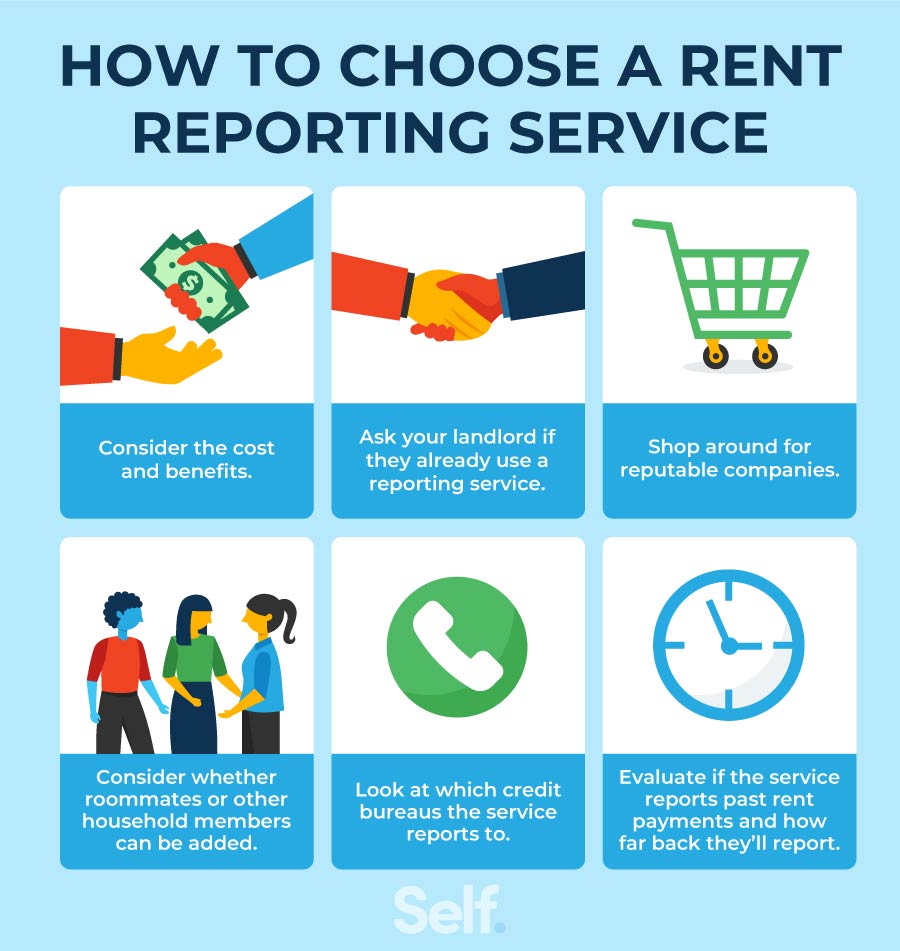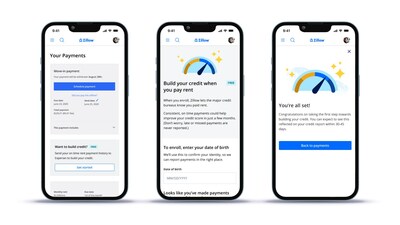How Rent Payments Impact Your Credit Score
Rent payments can have a significant impact on credit scores, but the relationship between the two is often misunderstood. In reality, rent payments are not typically reported to credit bureaus, which means they do not directly affect credit scores. However, some landlords and property managers may use third-party services to report rent payments to credit bureaus, which can positively impact credit scores.
Payment history is a crucial component of credit scores, accounting for 35% of the total score. When rent payments are reported to credit bureaus, they can demonstrate a positive payment history, which can improve credit scores over time. On the other hand, missed or late rent payments can negatively impact credit scores, making it more challenging to secure loans, credit cards, and other financial opportunities.
Credit utilization is another essential factor in determining credit scores, accounting for 30% of the total score. While rent payments are not directly related to credit utilization, they can indirectly impact credit scores by affecting the overall credit utilization ratio. For example, if a renter has a high credit utilization ratio due to other debt obligations, making timely rent payments can help improve their overall credit score.
It is essential to understand that credit scores play a critical role in securing loans, credit cards, and other financial opportunities. A good credit score can lead to lower interest rates, better loan terms, and increased financial flexibility. Conversely, a poor credit score can result in higher interest rates, stricter loan terms, and reduced financial opportunities.
While rent payments may not directly impact credit scores, they can indirectly affect credit scores by demonstrating a positive payment history and affecting credit utilization ratios. By understanding the relationship between rent payments and credit scores, renters can take control of their financial health and make informed decisions to improve their credit scores over time.
Does Paying Rent Build Credit? Separating Fact from Fiction
One of the most common misconceptions about rent payments and credit scores is that paying rent can directly build credit. However, the reality is more complex. In most cases, rent payments are not reported to credit bureaus, which means they do not directly impact credit scores.
So, does paying rent build credit? The answer is not a simple yes or no. While rent payments are not typically reported to credit bureaus, some landlords and property managers may use third-party services to report payments. These services, such as RentTrack, PayYourRent, and eCredable, can help tenants build credit by reporting rent payments to credit bureaus.
It’s essential to note that not all landlords and property managers use these services, and even if they do, it’s not a guarantee that rent payments will be reported to credit bureaus. Additionally, the impact of rent payments on credit scores can vary depending on the individual’s credit history and other factors.
Despite the limitations, there are still ways for renters to build credit through rent payments. By finding a landlord or property manager who reports payments to credit bureaus, renters can demonstrate a positive payment history, which can improve their credit scores over time.
It’s also important to understand that building credit through rent payments requires a long-term commitment. Renters should prioritize making timely payments and monitoring their credit reports to ensure that their payments are being reported accurately.
In summary, while paying rent does not directly build credit in most cases, there are still opportunities for renters to build credit through rent payments. By understanding the facts and taking control of their credit scores, renters can improve their financial health and achieve long-term financial stability.
How to Build Credit with Rent Payments: A Step-by-Step Guide
Building credit with rent payments requires a strategic approach. Here’s a step-by-step guide to help renters build credit through rent payments:
Step 1: Find a Landlord or Property Manager Who Reports Payments to Credit Bureaus
Not all landlords and property managers report rent payments to credit bureaus. Look for landlords or property managers who use third-party services like RentTrack, PayYourRent, or eCredable to report payments. This is crucial in building credit through rent payments.
Step 2: Set Up Automatic Payments
Setting up automatic payments ensures that rent payments are made on time, every time. This demonstrates a positive payment history, which is essential in building credit. Automatic payments can be set up through online banking, mobile banking apps, or by contacting the landlord or property manager.
Step 3: Monitor Credit Reports
Monitoring credit reports is crucial in building credit. Renters should check their credit reports regularly to ensure that rent payments are being reported accurately. This can be done by requesting a free credit report from the three major credit bureaus (Experian, TransUnion, and Equifax) once a year.
Step 4: Make Timely Payments
Making timely payments is essential in building credit. Renters should prioritize making rent payments on time, every time. Late payments can negatively impact credit scores, making it challenging to secure loans, credit cards, and other financial opportunities.
Step 5: Keep Records of Rent Payments
Keeping records of rent payments is essential in building credit. Renters should keep receipts, bank statements, and other documentation to prove timely rent payments. This documentation can be useful in case of disputes or errors on credit reports.
By following these steps, renters can build credit through rent payments and improve their financial health. Remember, building credit takes time and effort, but the benefits are worth it.
The Benefits of Rent Reporting Services
Rent reporting services have revolutionized the way renters can build credit. By reporting rent payments to credit bureaus, these services provide a valuable opportunity for renters to demonstrate a positive payment history and improve their credit scores.
One of the most significant benefits of rent reporting services is that they can help renters establish a credit history. For many renters, rent payments are their largest monthly expense, and by reporting these payments to credit bureaus, renters can demonstrate a commitment to making timely payments. This can be especially beneficial for renters who are new to credit or have limited credit history.
Rent reporting services can also help renters improve their credit utilization ratio. By reporting rent payments to credit bureaus, renters can demonstrate a lower credit utilization ratio, which can help improve their credit scores. This is especially important for renters who may have high credit utilization ratios due to other debt obligations.
Some popular rent reporting services include RentTrack, PayYourRent, and eCredable. These services work with landlords and property managers to report rent payments to credit bureaus, providing a valuable opportunity for renters to build credit. By using these services, renters can take control of their credit scores and improve their financial health.
In addition to the benefits mentioned above, rent reporting services can also provide renters with a sense of security and stability. By knowing that their rent payments are being reported to credit bureaus, renters can feel more confident in their ability to make timely payments and improve their credit scores.
Overall, rent reporting services provide a valuable opportunity for renters to build credit and improve their financial health. By reporting rent payments to credit bureaus, these services can help renters establish a positive payment history, improve their credit utilization ratio, and take control of their credit scores.
Alternative Ways to Build Credit as a Renter
While rent payments can be a great way to build credit, there are other alternative methods that renters can use to establish or improve their credit scores. Here are a few options:
Becoming an Authorized User on a Credit Account
One way to build credit as a renter is to become an authorized user on a credit account. This means that someone with good credit adds you to their credit account, and you benefit from their good credit habits. This can be a great way to establish credit if you’re new to credit or have limited credit history.
Taking Out a Personal Loan
Taking out a personal loan can be another way to build credit as a renter. By making timely payments on a personal loan, you can demonstrate a positive payment history and improve your credit score. Just be sure to only borrow what you can afford to repay, and make sure the loan is from a reputable lender.
Using a Secured Credit Card
A secured credit card is a type of credit card that requires a security deposit, which becomes your credit limit. By using a secured credit card responsibly and making timely payments, you can build credit and improve your credit score. This can be a great option if you’re struggling to get approved for a regular credit card.
Other Alternative Methods
There are other alternative methods that renters can use to build credit, such as taking out a credit-builder loan or becoming a co-signer on a credit account. These methods can be more complex and may require more effort, but they can be effective ways to build credit.
Remember, building credit takes time and effort, but it’s worth it in the long run. By using alternative methods to build credit, renters can establish or improve their credit scores and achieve long-term financial stability.
Common Mistakes to Avoid When Building Credit with Rent Payments
When building credit with rent payments, it’s essential to avoid common mistakes that can negatively impact credit scores. Here are some mistakes to watch out for:
Missing Payments
Missing rent payments can significantly lower credit scores. Late payments can also lead to additional fees and penalties, making it more challenging to pay rent on time. To avoid missing payments, set up automatic payments or reminders to ensure timely payments.
Not Monitoring Credit Reports
Not monitoring credit reports can lead to errors or inaccuracies that can negatively impact credit scores. Regularly review credit reports to ensure that rent payments are being reported correctly and that there are no errors or inaccuracies.
Not Understanding Credit Scoring Models
Not understanding credit scoring models can lead to confusion and mistakes when building credit with rent payments. Take the time to learn about credit scoring models and how rent payments are factored into credit scores.
Not Reporting Rent Payments to Credit Bureaus
Not reporting rent payments to credit bureaus can limit the potential for building credit. Ensure that rent payments are being reported to credit bureaus by using a rent reporting service or by asking the landlord or property manager to report payments.
Not Making On-Time Payments
Not making on-time payments can negatively impact credit scores. Make timely payments to demonstrate a positive payment history and improve credit scores.
By avoiding these common mistakes, renters can build credit with rent payments and improve their financial health. Remember, building credit takes time and effort, but it’s worth it in the long run.
Success Stories: How Renters Have Built Credit with Rent Payments
Many renters have successfully built credit by making timely rent payments and using rent reporting services. Here are a few success stories:
Case Study 1: Sarah, a 28-year-old marketing specialist, was struggling to build credit after graduating from college. She had no credit history and was finding it difficult to get approved for a credit card or loan. Sarah discovered a rent reporting service that allowed her to report her rent payments to credit bureaus. After six months of making timely payments, Sarah’s credit score improved by 100 points, and she was able to get approved for a credit card with a decent interest rate.
Case Study 2: John, a 35-year-old entrepreneur, was trying to build credit after a bankruptcy. He had been making timely rent payments for over a year but wasn’t seeing any improvement in his credit score. John discovered a rent reporting service that allowed him to report his rent payments to credit bureaus. After three months of using the service, John’s credit score improved by 50 points, and he was able to get approved for a small business loan.
Case Study 3: Emily, a 25-year-old student, was trying to build credit while in college. She had no credit history and was finding it difficult to get approved for a credit card or loan. Emily discovered a rent reporting service that allowed her to report her rent payments to credit bureaus. After six months of making timely payments, Emily’s credit score improved by 150 points, and she was able to get approved for a credit card with a decent interest rate.
These success stories demonstrate the potential of rent reporting services to help renters build credit. By making timely rent payments and using rent reporting services, renters can improve their credit scores and achieve long-term financial stability.
Conclusion: Taking Control of Your Credit Score as a Renter
Building credit as a renter is a crucial step towards achieving long-term financial stability. By understanding how rent payments impact credit scores and taking control of credit reports, renters can improve their financial health and secure better loan terms.
Remember, building credit takes time and effort, but it’s worth it in the long run. By following the steps outlined in this guide, renters can take control of their credit scores and achieve financial stability.
Final Tips and Recommendations:
1. Make timely rent payments to demonstrate a positive payment history.
2. Use rent reporting services to report rent payments to credit bureaus.
3. Monitor credit reports regularly to ensure accuracy and detect errors.
4. Avoid common mistakes, such as missing payments and not understanding credit scoring models.
5. Consider alternative ways to build credit, such as becoming an authorized user on a credit account or taking out a personal loan.
By following these tips and recommendations, renters can take control of their credit scores and achieve long-term financial stability.







